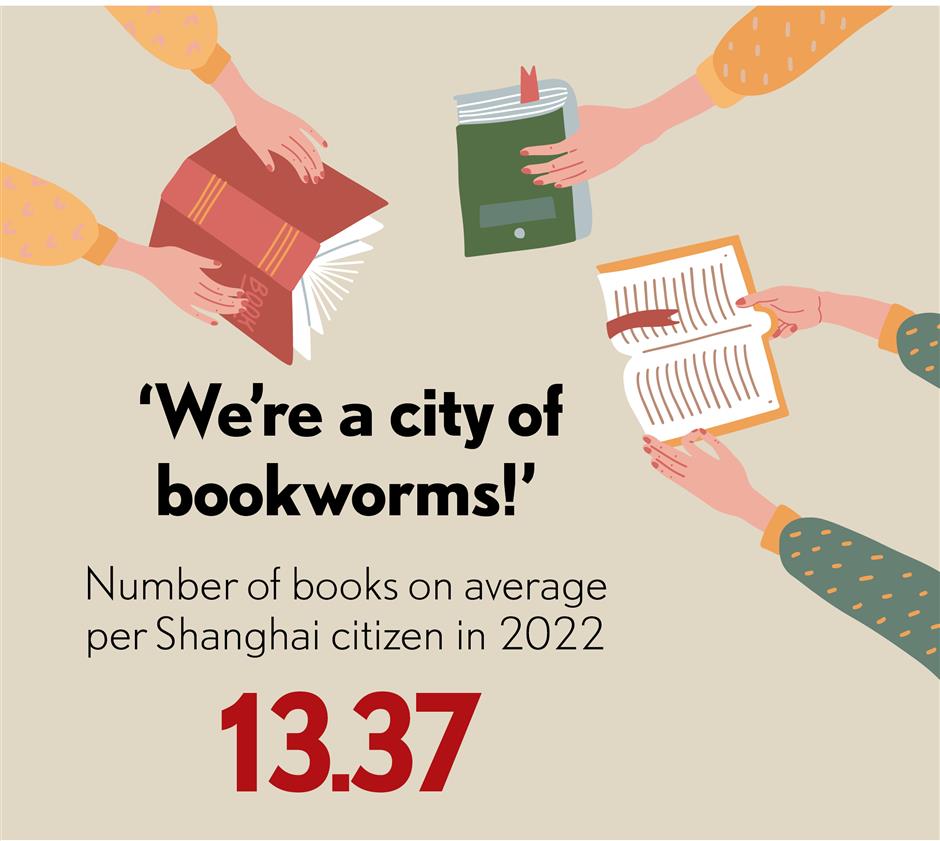A new chapter opens as readers go digital
Shanghai's citizens read more than 13 books per capita on average in 2022, surpassing the national average, survey results released on Saturday, one day ahead of World Book and Copyright Day, show.
The digital reading rate in the city exceeded paper reading for the first time last year, despite public spending on paper books still being double that of digital reading, according to the survey.
Nearly 80 percent of citizens have used public cultural facilities in the past year. Book fairs, second-hand book exchanges and reading clubs have been listed as the most popular public reading activities.
"Shanghai citizens have acquired good reading habits and have a strong desire to improve their cultural literacy," the survey revealed.




The survey was jointly publicized by the publicity department of the city government and the China Institute for Urban Governance of Jiao Tong University.
More than 96 percent of citizens have read through paper, digital, audio and video books, a steady one percentage point increase on year.
The average annual reading volume of citizens is 13.37 books, while the top three reading motivations are: personal habits and hobbies, obtaining necessary information and knowledge, as well as entertainment and killing time, the survey says.
Digital reading is becoming more popular among locals, who spent about 50 minutes every day on average on digital books in 2022, about four minutes longer than that of 2021.

An orchestra performs for the New Jiangnan Reading Club at the Nine Tree Art Center on Sunday.
The survey shows citizens require more from brick-and-mortar bookshops apart from buying books, browsing and studying, such as a comfortable space, culture and innovation ambiance, coffee and other services.
Citizens told the survey that they hoped the bookstores can also become a good place for personal leisure reading (70.50 percent), a parent-child reading area (52.19 percent) and a new social space (45.12 percent).
In the past year, more than half of the citizens had frequently visited a bookstore and nearly a quarter of them went to the bookstore at least once a month.
Young readers prefer bookstores with a variety of businesses and services to the traditional bookshops.
Citizens believe that the most important thing in a bookstore is book selection, followed by the atmosphere and the concept of the bookstore, the survey says.

A newly unveiled reading space at the Nine Tree Art Center in Fengxian.
A number of themed activities about reading were held across Shanghai during the weekend.
Yangpu District, for instance, released a map of its popular bookstores around the Wujiaochang commercial hub and Daxue Road.
The outlying Fengxian District launched a New Jiangnan Reading Club at the Nine Tree Art Center.
The reading club mainly focuses on the rural revitalization and the Jiangnan (regions south of the lower reaches of the Yangtze River) Cultures. It aims to promote "countryside reading" among citizens.
















